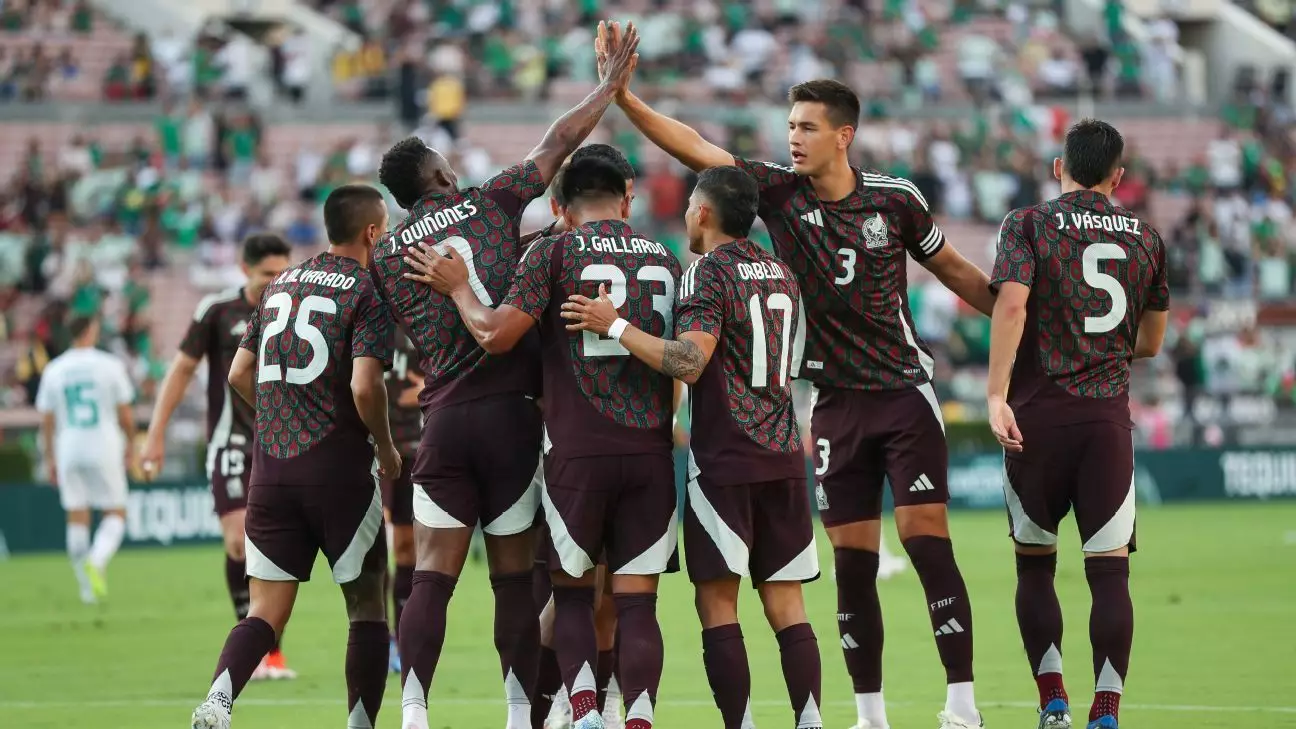As Mexico embarks on a new chapter in its football saga, the cautious optimism surrounding the national side cannot be understated. With Javier Aguirre stepping in as the new head coach, former experiences from his earlier tenures and a strong commitment have injected fresh energy into the team. The initial results from this new leadership have been a mixed bag of promise and caution, leaving fans curious yet hopeful about the path ahead.
In his first international window, Aguirre orchestrated a commendable performance, leading to an undefeated campaign through a convincing 3-0 win over New Zealand and a hard-fought 0-0 stalemate with Canada. While these results don’t provoke elation among a fanbase hungry for victory, they illustrate significant improvements from a side that recently floundered at the Copa América under former coach Jaime Lozano. Observers were struck by the marked difference in attitude and enthusiasm on the pitch.
Against New Zealand, players such as Luis Romo and Orbelín Pineda displayed an insatiable hunger that has been absent from recent outings. This renewed vigor is a crucial element as the team refines its tactical approach with Aguirre’s guidance. Despite being met with various challenges, including a more aggressive Canadian side, the resilience shown by the players offers reason for cautious optimism moving forward.
Aguirre’s presence is a significant factor in the rejuvenation of El Tri. As emphasized by sporting director Duilio Davino, Aguirre’s character and ability to inspire players play a crucial role in extracting the best from the squad. His personality seems to resonate well with the players, motivating them to elevate their performances. As the team faces tougher opponents in future matches, maintaining that morale will be critical to their success.
Tactically, Aguirre displayed a flexible approach during the match against Canada, adapting to the game as it unfolded. His initial plan seemed aggressive but led to unnecessary fouls and tension within the first half. By the second half, a shift in strategy led to a more organized and proactive game, showcasing Aguirre’s capacity for adjustment.
While Aguirre’s defensive tactics have shown promise, the struggle of striker Santiago Giménez to find the back of the net raises concerns. Despite his efficiency at Feyenoord, his inability to score in national colors has persisted, with his last international goal over a year ago. The missed opportunities against Canada highlighted this drought, particularly when a close-range shot was thwarted by goalkeeper Dayne St. Clair.
Aguirre’s response to this predicament was telling; rather than placing blame, he emphasized the importance of the team effort, dismissing the notion of individual scoring as a measure of success. However, for a player heralded as Mexico’s next big star, the expectation remains that he will soon convert his domestic prowess into international success. The lingering question is whether Aguirre can unlock that potential before it slips further away.
In stark contrast to their recent lackluster defensive displays, Mexico’s backline has emerged as a fortress under Aguirre’s leadership. In both matches, the defense surrendered minimal expected goals (xG), especially against Canada, where they limited their opponents to an xG of merely 0.26. Goalkeeper Luis Malagón also deserves recognition, contributing crucial saves that preserved clean sheets in both encounters.
Aguirre’s commitment to building a sturdy defensive setup is reinforced by the presence of assistant coach Rafa Márquez, whose experience can be invaluable in imparting tactical wisdom to the squad. The synergy between coach and players will dictate Mexico’s defensive resilience moving forward, as building confidence on the backline can serve as the platform for future successes.
However, the excitement surrounding the new regime doesn’t seem to have translated to fan attendance, a concern for a national team historically supported by legions of passionate followers. With just over 25,000 attending the match against New Zealand in a venue that can hold more than 90,000, and attendance slightly improving for the match against Canada, the situation is concerning.
External factors like the oppressive heat in Pasadena and a mid-week game in Dallas cannot overshadow the need for Aguirre to re-engage the passionate fanbase. The rows of empty seats may indicate a larger disillusionment with the national team’s trajectory, exacerbated by recent performances.
While Javier Aguirre’s early tenure heralds a renewed spirit within the Mexican national team, there are numerous facets requiring attention and improvement. From consistent offensive production to enhancing fan engagement, successful navigation of these challenges will determine the future of El Tri. Supporters remain hopeful, as potential transformation awaits should the pieces fall into place under Aguirre’s stewardship.


Leave a Reply